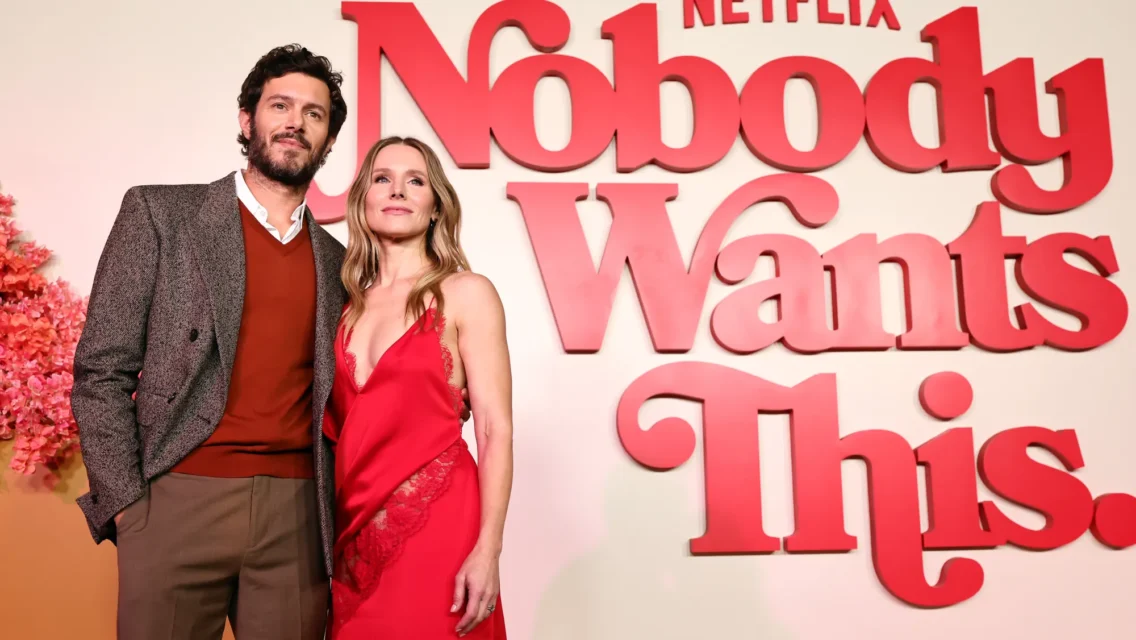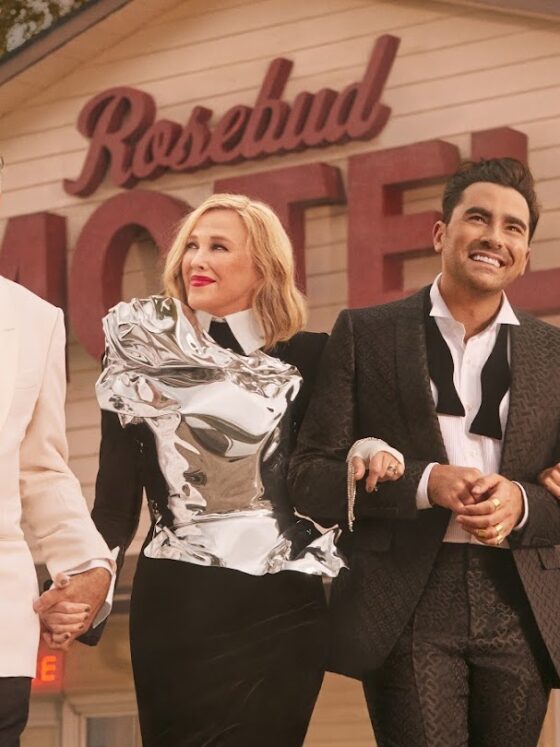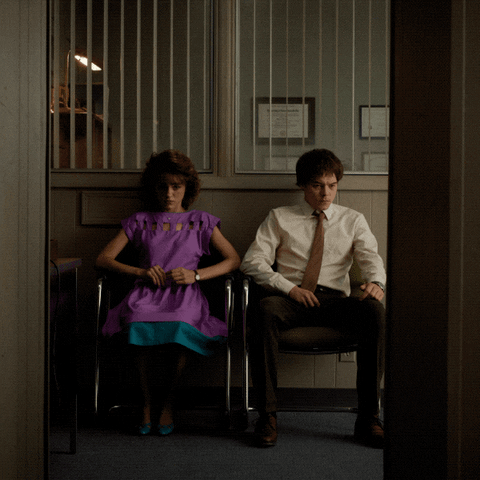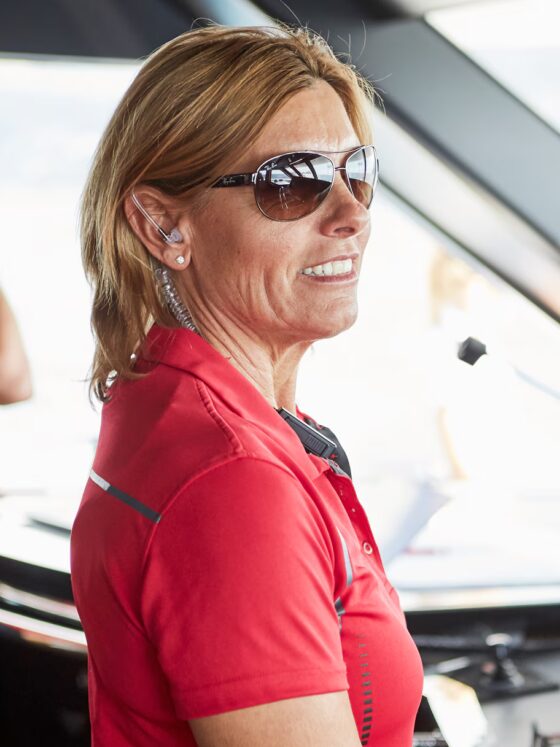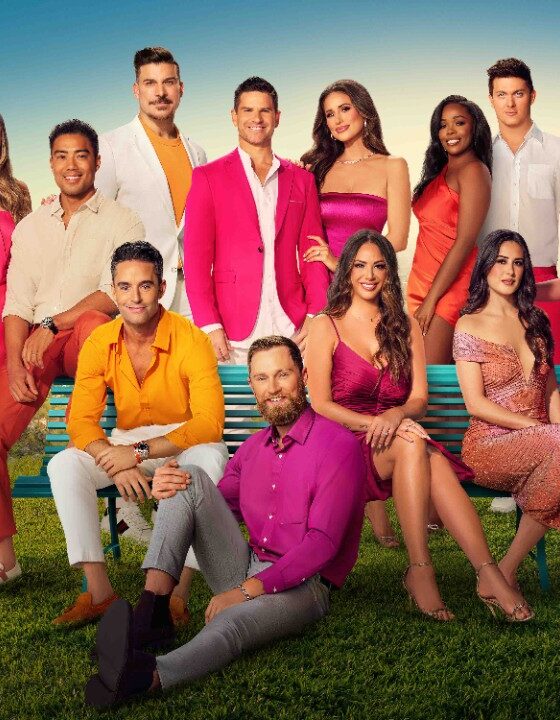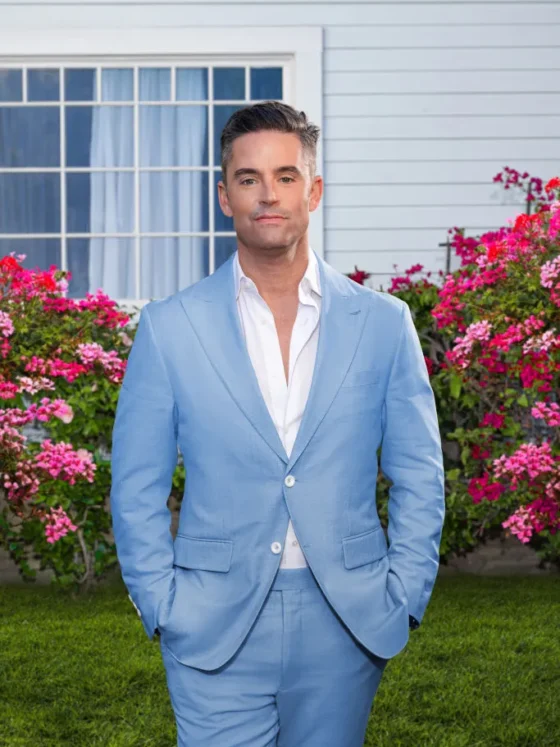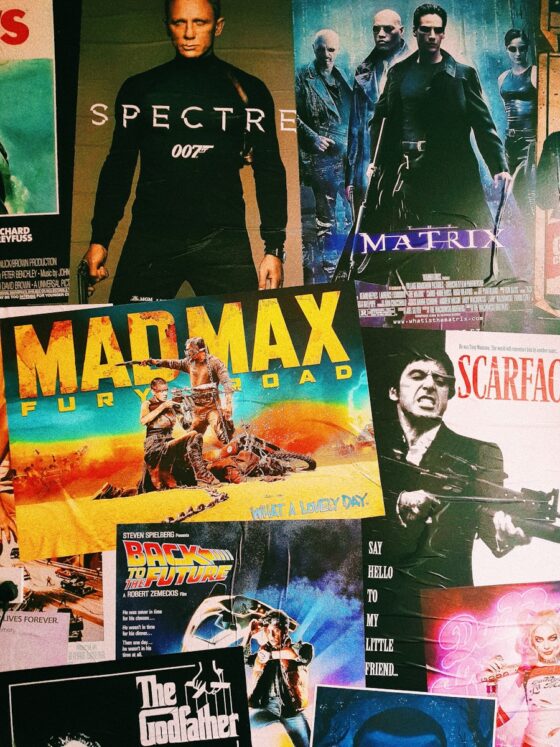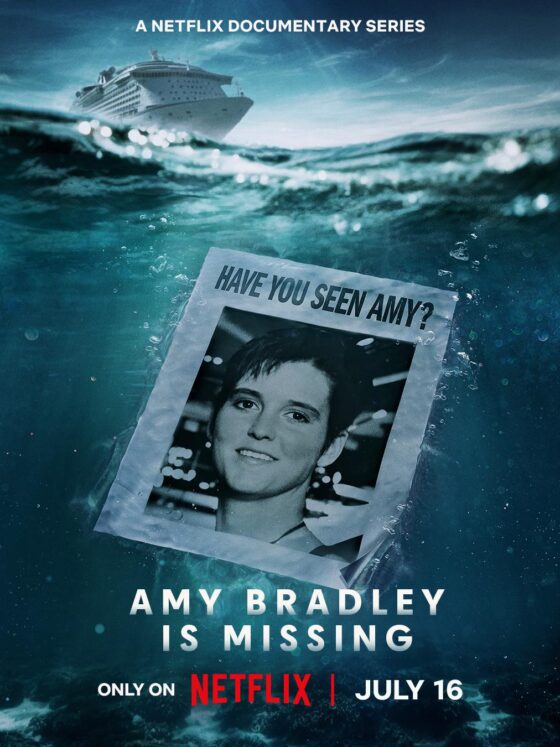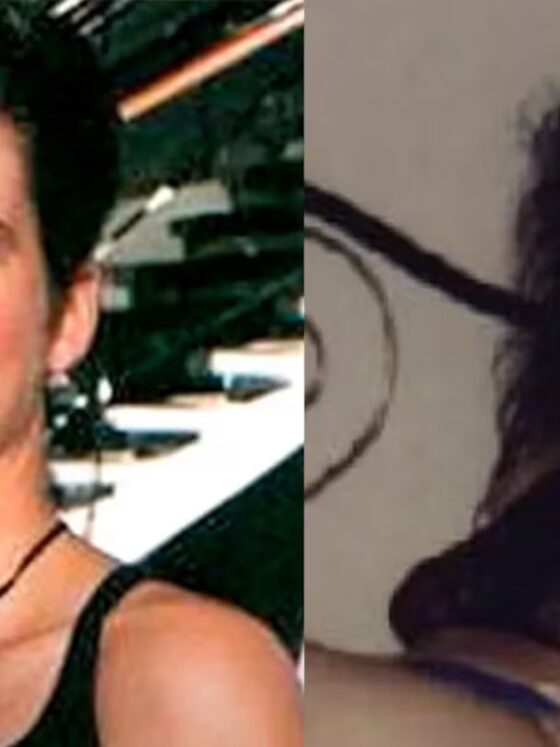There’s a moment early in Nobody Wants This — Erin Foster’s semi-autobiographical Netflix dramedy — that should’ve been a cute, blink-and-you-miss-it exchange. Seth Rogen, playing a rabbi, accidentally mixes up Tu B’Shvat (a tree-hugging celebration of nature) and Tisha B’Av (basically the saddest day on the Jewish calendar).
It’s a quick gag, but it lands weird. Because this isn’t just a throwaway sitcom about brunch and bad boyfriends — this is a show that says it’s about Judaism. So when the main rabbi can’t tell the difference between two major holidays… it’s like watching someone wear a “Star of David” necklace from Urban Outfitters and calling it heritage.
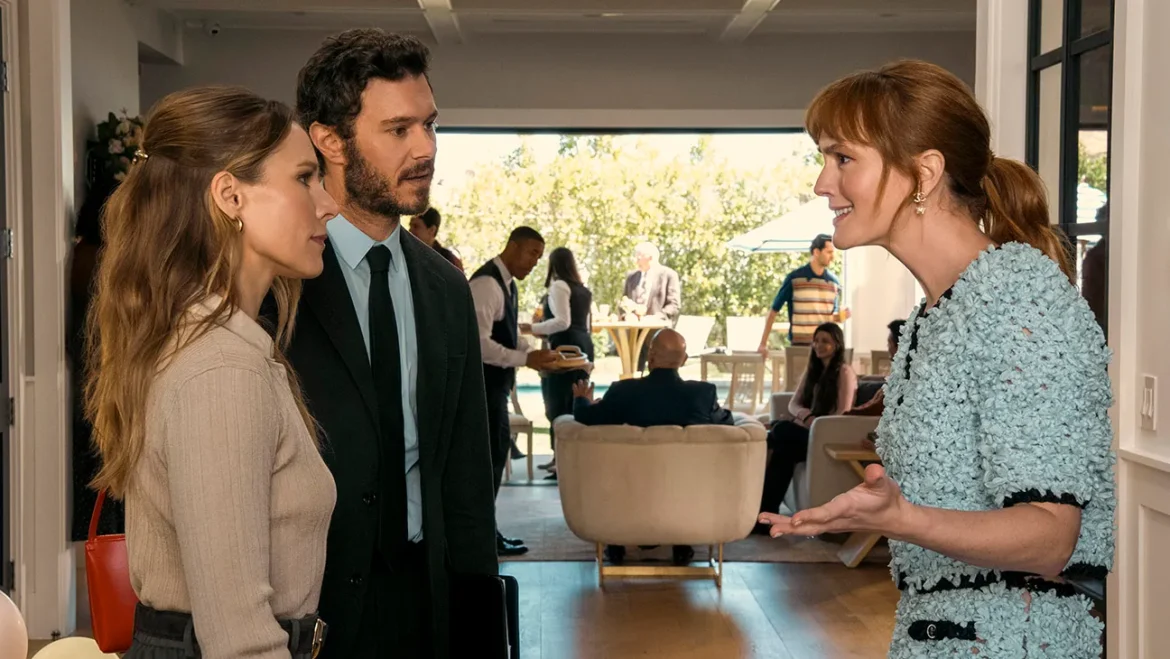
The Erin Foster Phenomenon
Erin Foster is a sharp writer — no one’s denying that. (Barely Famous walked so Nobody Wants This could stumble in stilettos.) She’s part of that LA-cool scene — all designer denim, dry humor, and generational therapy jokes. The show follows Noah Roklov (Adam Brody), a young rabbi, and Joanne (Kristen Bell), his non-Jewish girlfriend, as they navigate love, family, and faith.
On paper? Love it. Representation! Religion! Adam Brody in a yarmulke! But in practice, the show treats Judaism less like a living tradition and more like quirky wallpaper.
It’s not offensive — it’s just… uninterested.
When Faith Becomes a Prop
In one episode, there’s a Purim party that looks more like Halloween at The Wing — zero connection to the 2,500-year-old story behind it. Later, a brit bat (a Jewish baby-naming ceremony for girls) becomes a punchline about rich Jews and baby names that sound like candle scents.
These aren’t dealbreakers by themselves — but they add up. You start realizing that Judaism, in Nobody Wants This, mostly exists to create awkward family scenes and justify overbearing mothers.

In other words: religion as set dressing.
Compare that to a show like Black-ish — which managed to be hilarious and deeply thoughtful about Black identity, culture, and generational tension. That show did the work. Nobody Wants This wants the aesthetic of meaning without the homework of understanding.
The “Cool Rabbi” Problem
Foster defended her show in interviews, saying she made the rabbi “a hot, cool, young rabbi who smokes weed.” Which… sure. But being cool doesn’t mean you’ve explored what faith means.
When your lead character’s relationship to his religion feels like a branding exercise, you’ve kind of missed the point. Representation isn’t just showing someone who happens to be Jewish — it’s about giving that identity depth.

It’s the difference between showing a menorah and showing what lighting it means.
Missing the Big Conversations
And here’s what’s extra jarring: in a show full of rabbis, synagogues, and Jewish family dinners, no one ever mentions what’s actually been happening in the Jewish world — not even in passing.
In 2025, that silence feels loud. Since October 7, Jewish identity has become something people are actively reexamining — wrestling with grief, politics, belonging, and spirituality. People are asking big, messy, beautiful questions about what being Jewish means now.
But in Foster’s universe, Judaism seems frozen in amber. A thing to be referenced, not lived.
Meanwhile, in real life, synagogues across North America are filling with new faces, people reconnecting to heritage, and rethinking what faith means in the modern world. (There’s an amazing piece in The Forward about this, by the way — highly recommend if you’re interested in real stories of Jewish revival.)
Not About Being “Offensive” — About Being Empty
To be clear, Nobody Wants This isn’t guilty of big, ugly antisemitism. It’s not that show. It’s just… hollow.
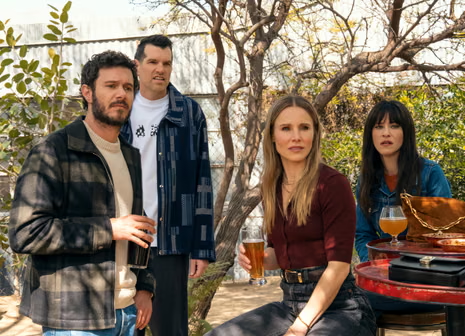
It celebrates Jewish characters mainly by showing how normal and relatable they are — but never by showing how uniquely Jewish they are. Which kind of defeats the purpose.
It’s like going to a Passover seder and skipping the part where anyone talks about freedom — just focusing on the charcuterie board.
Why It Matters (Even If It’s “Just TV”)
You might be thinking, “Relax, it’s entertainment.” But that argument doesn’t hold up anymore. Audiences have proven they can handle nuance — they want it. Shows like Ramy and Reservation Dogs prove you can be funny, complex, and culturally grounded all at once.
So when Nobody Wants This shrugs off the opportunity to actually say something, it feels like a betrayal of what it promised. Especially when this might be the only show about a modern Jewish clergyman on a mainstream platform.
If this is how Netflix wants to “do Jewish,” we deserve better.
Representation Isn’t Just a Checkbox
There’s a line in the show where a character asks Noah, “Would you choose Judaism if you weren’t born into it?”
It could’ve been such a moment. A deep, revealing question about choice, belief, and belonging. But before the show can answer, someone cracks a joke and the scene ends.
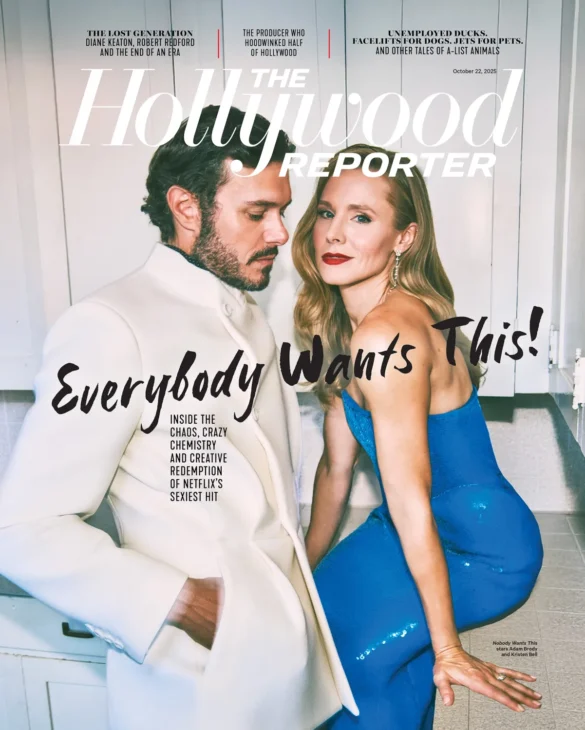
And that’s the Nobody Wants This problem in a nutshell — every time it could dive deeper, it decides to stay in the shallow end.
What Real Representation Could Look Like
If Nobody Wants This really wanted to represent modern Judaism, it might show:
- A family debating over bagels vs. bialys and over theology.
- A rabbi navigating love and God, not one or the other.
- Jewish joy — not just guilt.
We don’t need perfect representation. We just need interested representation.
Because when a show about faith has no curiosity about faith, it’s not representation — it’s set design.
Final Thoughts
Nobody Wants This isn’t a disaster. It’s glossy, witty, occasionally charming. But like a matzah ball without enough broth, it’s missing warmth and depth.
Foster’s world has style, heart, and humor — it just needs to start asking the questions it keeps tiptoeing around. Until then, it’ll keep feeling like a show about Judaism that’s not actually interested in Judaism.
Maybe nobody wants that. But honestly? We kind of deserve better.
Further Reading:
- Why Representation Still Matters in Streaming
- The Forward: What Jewish Audiences Are Really Watching
- Ramy on Hulu: a masterclass in cultural specificity with universal appeal.


